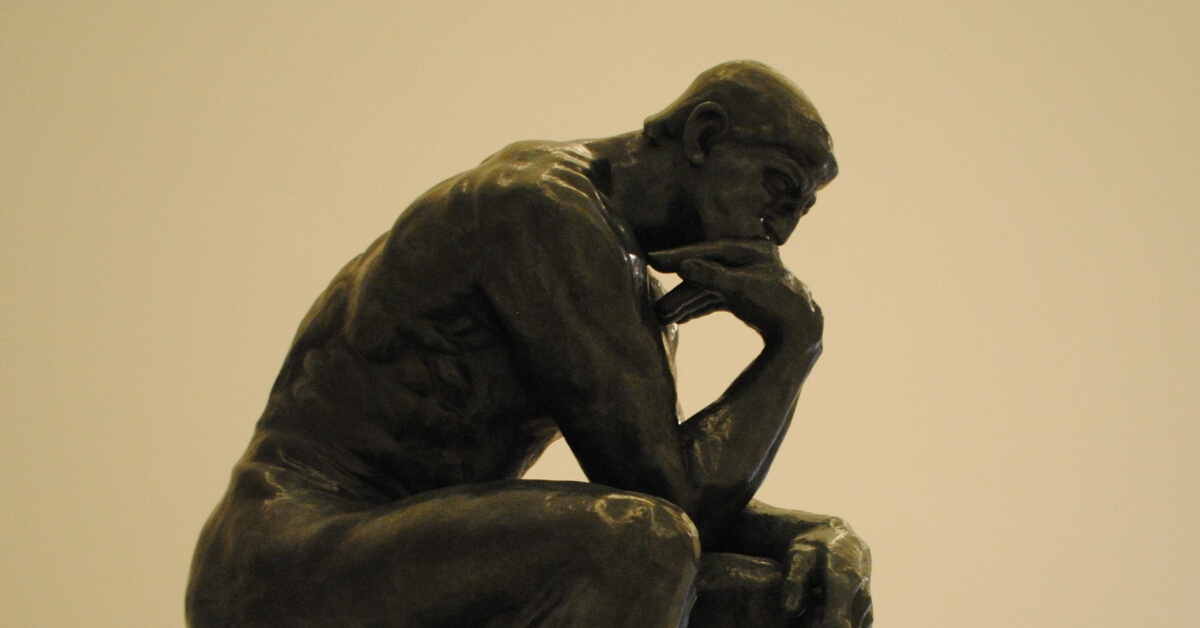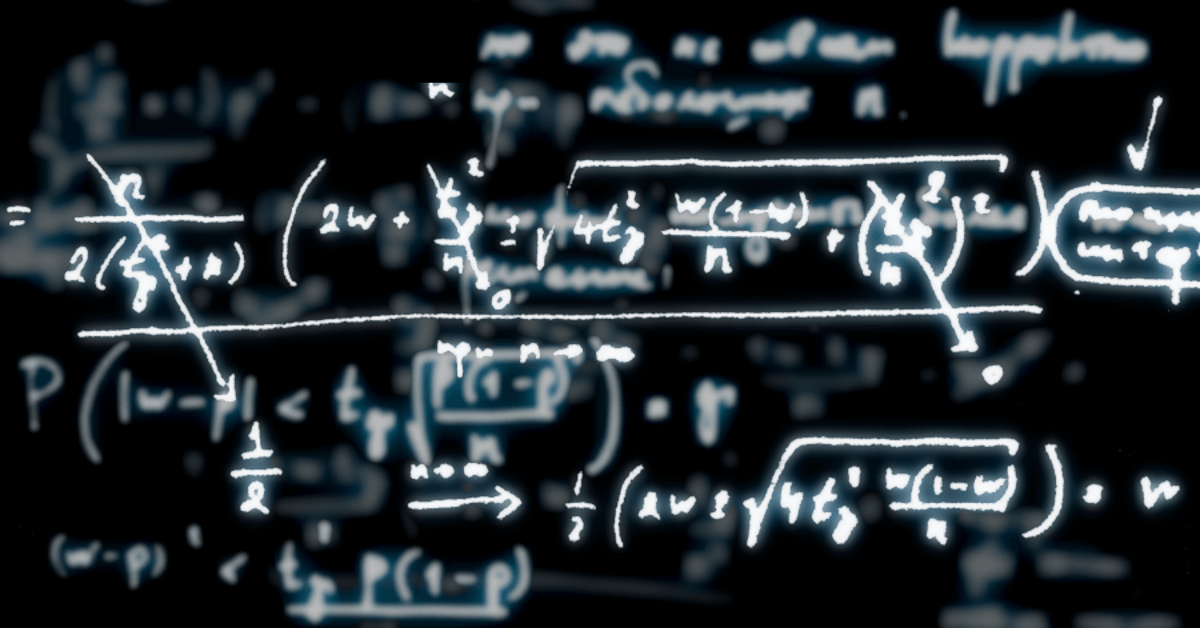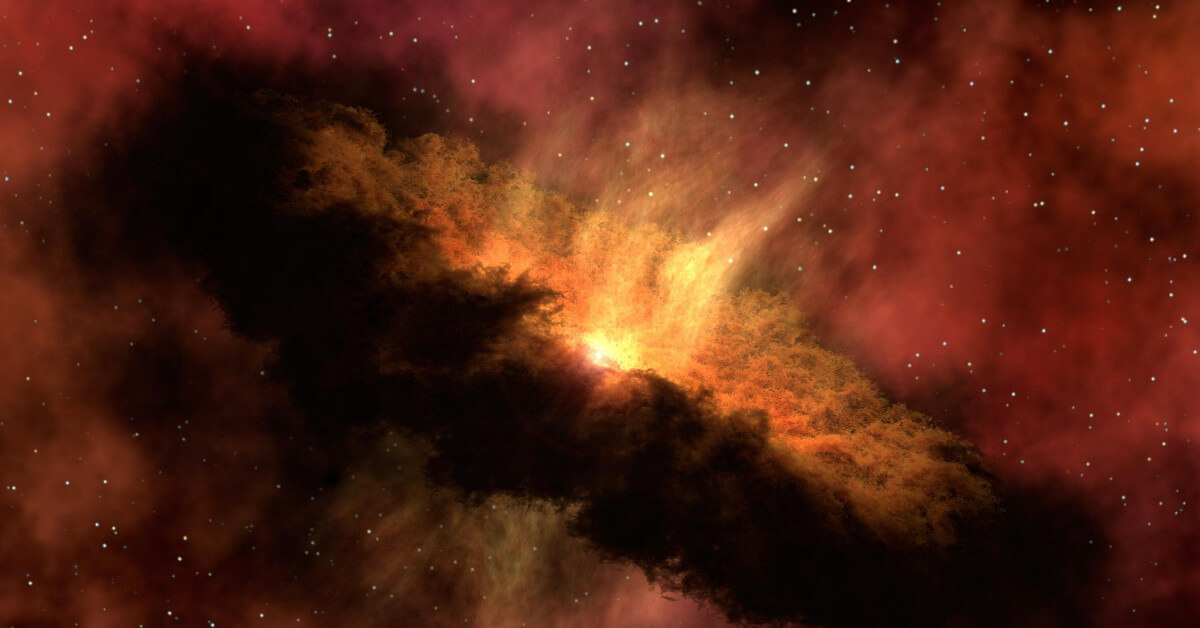When it comes to attempts to “prove” Christianity, I tend to agree with Chesterton when he writes that “a man is not really convinced of a philosophic theory when he finds that something proves it. He is only really convinced when he finds that everything proves it. And the more converging reasons he finds pointing to this conviction, the more bewildered he is if asked suddenly to sum them up… That very multiplicity of proof which ought to make reply overwhelming makes reply impossible.”
Additionally, any attempt at logical proof of Christianity has the same flavor as an effort to prove deductively that one’s wife exists. Even if the attempt is successful, something is lost in the process. The fact that Christianity can successfully be fit into a logical proposition should not be taken as evidence that it is best left there.
Despite these caveats, an apologetic that avoids the temptation to try to fit Christian belief into a simplistic and rigid “2+2=God”-type formula can be valuable, both in confirming the believer’s faith and in offering non-Christians reasons for belief. With those goals, then, the following is the best account I can give of the “converging reasons” why I am a Christian.
IS THERE A GOD, OR NOT?
In questions of religion, the first logical division is that of theism from atheism: “Is there a God, or not?” This has always struck me at the easiest step in the Christian apologetic. The classic question, “Why is there something, rather than nothing?” demands the existence of a supernatural cause. We can look down through the depths of time to see infinity below us, but we find nothing in the universe able to reach far enough to rest on such a foundation. So there must have been something that could stand upon infinity and, reaching out, hold up all else – all that could not itself be rooted in eternity.
We can take it as a premise that the universe exists. If it exists now, it either began to exist at some definite point in time, or else it has existed without beginning, from infinity. Regarding the latter option, science and logic agree that our temporal, material universe, with its limited supply of energy, could not possibly have existed from infinity; put simply, it is not the sort of thing which is eternal.
This leaves us with a universe which did not exist, and then began to exist. It was not, and then it was. Yet, ex nihilo, nihilo fit: Out of nothing, nothing comes. While the universe was not, it certainly could not cause either itself or anything else. And it would have remained comfortably not forever had not something else, something that already was, caused the universe also to be. Furthermore, this Cause had to have been one that is the sort of thing which is eternal. (If our Cause had ever not existed, it would itself require a cause, and so on.)
Thus far we do not have much of a “God.” However, note that our Cause is eternal and sufficiently powerful to create the universe. There are also strong hints of intelligence and will, unless we picture creation as an act of necessary and unconscious emanation after the model of the Neoplatonists.
The structure of nature itself strengthens the case for the existence of a Cause, while offering additional hints as to that Cause’s essence. The step from jumbled, prebiotic chemicals to the complexity of even the simplest form of single-celled life, with its hundreds of genes each containing thousands upon thousands of precisely-organized nucleotide bases, remains inexplicable except in terms of an active intelligence. And once one moves beyond the unicellular level, “irreducibly complex” biological features such as the eye, bacterial flagellum, or blood-clotting cascade, once again defy purely natural explanations.
So now our Cause is a designer also, and the conclusion that He possesses intelligence and will seems inescapable. An emanation cannot choose, yet design of the sort we see in creation requires choice: “I will make it like this, and not like that.” Furthermore, the Cause did not merely create apples; He made them red and sweet. He did not merely create a sun, but also sunsets. The superfluous flourishes suggest a taste for beauty and complexity, a joy in creation and design.
Further evidence of divine personhood come from our own personhood. As Francis Schaeffer wrote, “A stream cannot rise higher than its source.” That which does not possess personality – self-awareness, intelligence, will, emotions – cannot dispense personality. From this combination of personhood with necessary existence and immeasurable power, our Cause certainly appears to fit the traditional understanding of “God.”
Before leaving this topic, there is one further evidence for the existence of God which I have always found persuasive, though my purely logical side is inclined to turn up its nose at the argument’s subjectivity. I am speaking of the sense that one is living in Someone Else’s work of art, that this mountain and that cloud and that man are not merely there as a matter of happenstance, but that Someone put them there and is glad to see them. It’s the difference between a crowded bus station and a play, or between a photograph and a painting; between what simply is and what is by design. This sense of the intentionality of the world is unlikely to persuade someone who does not himself feel it, but for me it is perhaps the most deeply-felt argument for theism.
DOES GOD MATTER?
The principal question now, from the human perspective, is whether this God whose existence seems evident has any practical relevance to our daily lives. In-and-of itself, the fact of a Cause, even of a personal Cause, does not imply anything beyond an explanation for our own existence. We have not yet gotten any farther than the Deistic “Supreme Architect” who set the game in motion and then exited the playing field. In particular: Does God view His relation to individual humans as anything more than that of two coexistent beings? And if so, how does He view that relation? Does interest in it influence his conduct? And can the relation be affected by human action?
At this point, there are two possible avenues to pursue in answering these questions. First, we might continue to examine nature and our own experience to seek evidence of God’s hypothetical involvement in human affairs, and secondly we might consider the claims by various religions of documenting just such involvement. I propose to do both.
The first argument I will consider is probably the weakest from a purely logical perspective, but it nonetheless catches deeply at the human core. It concerns what we might call the human sense of transcendent meaning, that what one is and does ought to matter, and does matter, in a venue beyond the merely natural and material. What is it that makes the pagan Greek hoplite charge a bristling field of bronze spearpoints, or makes the African tribesman offer a portion of his hard-won kill to the gods, or makes the American yuppy businessman attend a spiritualism retreat in the Catskills? I suspect that one of the atheist’s hardest tasks is fighting the resilient sense that THIS is not all there is, but that what one does here matters in some undefined way. Socrates wasn’t entirely sure what would follow his hemlock draught, but he was nonetheless quite sure that he ought to drink it, despite the fact that this was an entirely irrational conviction from a biological standpoint.
This observation could be used, of course, merely as another argument for theism. In the absence of a Designer God, instincts such as our sense of transcendent meaning can only be explained through survival value, an explanation which seems quite insufficient to answer for an inclination to suffer inconvenience, harm, or even death for the sake of an undefined, non-terrestrial something.
Beyond this point, though, if God’s existence is already assumed, then the human confidence in transcendent meaning offers a powerful rebuttal of the Deistic conception of an “absent God.” If God exists, then our sense of transcendent meaning comes from Him. And yet, a God without concern for humanity offers no more hope of such meaning than is found in a strictly atheistic world. After all, if our actions are to have significance “beyond” and “after,” that significance by definition must come from something other than ourselves. There must be some relation between God and man for a life to have meaning beyond the curtain of the material world. Unless that meaningful relation exists, the Godgiven instinct to look for a meaning that transcends our natural existence is nothing but a deceitful promise, a signpost to nothing.
A second argument against an “absent God” is based on the moral law. Every human, be he pagan, Muslim, or Christian, has an innate sense of right and wrong which can be ignored, but not escaped. The thief whose partner cheats him of his share of the loot feels genuinely wronged – in a very different way than he would if the stolen goods had been lost or accidentally destroyed – because his partner “broke the rules.” The moral relativist who espouses sexual liberality in the abstract will still break your nose if you corrupt his daughter, and feel justified in doing it. Jean-Paul Sartre spent his life teaching that “everything is permissible” because God does not exist, yet he signed a document fiercely condemning the French for their treatment of the colony of Algeria. It is only by concerted effort that one can ignore his conscience, and then only in part or for a moment.
This innate moral law cannot be mere amoral instinct, for instinct tells us what to do, while the moral law tells us what we ought to do. Instinct tells us to eat; morality tells us we ought not eat what is our neighbor’s. Furthermore, as C.S. Lewis points out, morality is most often a guide between conflicting instincts, such as when the instinct to protect others conflicts with the instinct for self-preservation.
The moral law cannot be explained away as nothing but a social construct either. If morality was merely something one learned from parents, teachers, and peers – like driving on the right-hand side of the road or using the metric system – then there could be no higher court of appeal than one’s own, individual society. If I drive on the left-hand side of the road, I had better beware my local highway patrolman, yet that same patrolman feels not a hint of acrimony towards the millions of Englishmen who do exactly the same thing on a daily business; for, after all, it’s up to them to decide how they wish to drive. In contrast, we do feel something is wrong, deeply wrong, when the Aztec rips the still-beating heart from a human sacrifice, or the Hindu burns a widow on her husband’s pyre, or the tribesman mutilates his daughter’s genitals. In this case, we do not say, “Well, it’s up to them to decide.” No, because these sorts of actions must be judged by a higher standard than social convention – that of the moral law.
Our sense of objective moral standards, then, most certainly exists, while being inexplicable through either natural or social agency. In that case, these moral imperatives that we feel, these laws regarding what we ought and ought not do, must originate in a Lawgiver; a hypothesis that actually has the added advantage of fitting their felt nature more closely than any other. Like a science-fiction robot that mistakenly believes itself human until it encounters inviolable and inexplicable commands programmed into its very core, so we also discover commands that cannot be explained except through the “programming” of some powerful Other (though of course, in contrast with our illustrative robot, our felt commands can be disobeyed).
If I was merely attempting to demonstrate the existence of God, I would stop here, but the goal now is not merely to discover whether God exists (a proposition for which this argument does offer additional support), but also how this God views his relation with individual humans. And the moral law has much to suggest here. For this is not merely a felt, implicit promise, like our sense of transcendent meaning. Rather, these are direct commands: “Thou shalt” and “Thou shalt not.”
We have, then, a God who is sufficiently concerned with the human condition to reach into our very souls and implant direct commands for how we ought to act, along with the suggestion that how we respond to this Law is part of a play that extends far beyond the realm we now inhabit. And that should give us, to once again quote Lewis, “cause to be uneasy,” for, after all, the moral law does not offer any hint of flexibility or grace. “You ought,” and yet we do not. “You ought not,” and yet we do.
This brings us to the realm of specific religious claims, but I see that I have already run well over two thousand words and I think I will belatedly append “Part I” to the title of this post, leaving the remainder of the issue for later.






